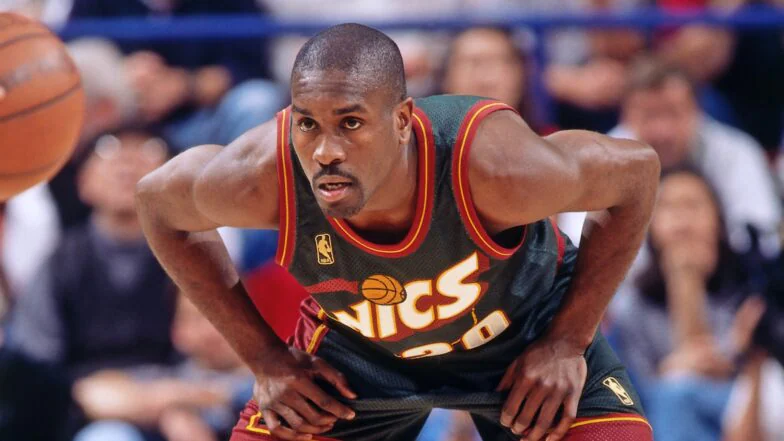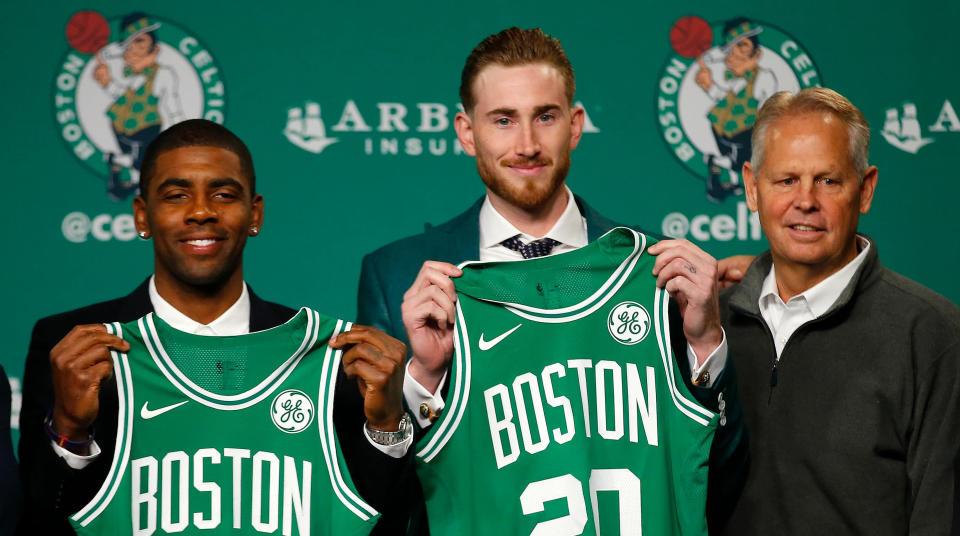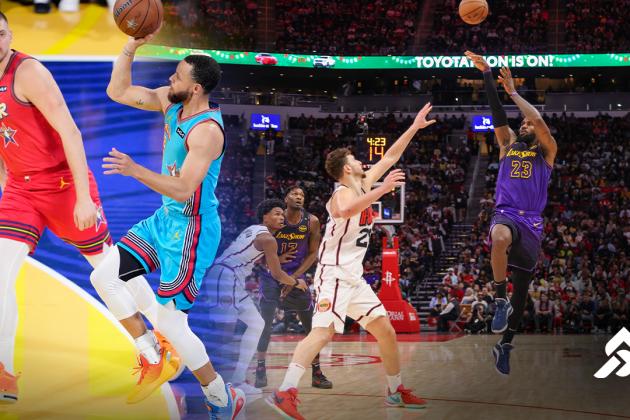Michael Cooper: An Exception on the Road to Springfield

Michael Cooper was the anomaly. His journey to Springfield was paved with missed shots, damaged rims, frayed nerves, and numerous games without a single basket made, leaving a trail of defeated opponents in his wake.
“Michael Cooper was the GOAT of perimeter defenders,” said Pat Riley, who coached the pesky Cooper to five NBA titles with the “Showtime” Los Angeles Lakers in the 1980s and served as one of his presenters on the stage at Symphony Hall. “He brought out the hard work in everybody and took great pride in that.”
Cooper used his lithe, 6-foot-7 frame, his crossing-gate wingspan and his boundless energy in being named to eight All-Defense teams. He pestered opponents across 12 seasons, all with the Lakers, but never more than in 1987 when he was named NBA Defensive Player of the Year.
Now his ambition to stick the other guys with a shutout has landed him among a select crew within the Hall’s already elite membership. He’s one of the rare HOFers who got in primarily as a defender.
Cooper, 68, knew it too, ticking off their names: Dennis Rodman, Ben Wallace, Bobby Jones and the recently departed Dikembe Mutombo. Other enshrined stars played strong defense, sure, but none to the degree of that stingy specialized five.
“My high school coach taught me… being a good defensive player keeps you on the floor,” Cooper said at a news conference celebrating the Class of 2024. “If you’re shooting the basketball and you’re not hitting shots, c’mon and sit down. You ain’t guarding anybody anyway.’ So it was always important to me to be a good defensive player.
“As I grew up and went through the different stages from high school to college, I did learn to shoot. But defense was first and foremost.”
Cut twice from his high school team, Cooper did well enough only to land a roster spot at Pasadena City College. He transferred to the University of New Mexico to play under coach Norm Ellenberger, then got his shot as a third-round pick by the Lakers in 1978.
Riley, who became a Lakers assistant in Cooper’s second season, “encouraged me to focus on my particular skill,” the player said. With rookie Magic Johnson on board by then to pair with Kareem Abdul-Jabbar, that 1979-80 team beat Philadelphia for the NBA championship.
Others arrived – James Worthy, Byron Scott – to help with the offense. By then Cooper’s role was established, his value growing with titles in 1982, 1987 and 1988.
“Not only was he the best defensive player, he made sure we were all focused on defense as well,” said Johnson, another of Cooper’s presenters.
Cooper wasn’t without scoring skills. He was on the end of countless “Coop-A-Loop” soaring dunks from Johnson and he was an early devotee of the 3-point shot when it was a more specialized weapon.
Still he scored 20 points or more in just 20 of his 873 regular-season games. Too bad the points he shaved off his man’s scoring average couldn’t get added to his. Only Wallace (5.7 ppg) and Rodman (7.3) averaged fewer than Cooper’s 8.9 among post-NBA merger (1976) Hall of Famers.
Most of Cooper’s highlights and the questions he fielded this weekend stuck to his defense. He thanked Boston star Larry Bird from the stage Sunday and made Bird laugh when he said: “As that old saying goes, iron sharpens iron and the Celtics made us the sharpest tool in the box.”
He regrets to this day being immortalized on the receiving end of Julius Erving’s breathtaking “Rock The Baby” dunk in January 1983. “I wish I had got out of Dr. J’s way,” Cooper said. “For those of you who saw me duck my head, it wasn’t because he was going to dunk the ball. I was ducking my head so I wouldn’t hit the backboard.”
And for all the big notches he got on his defensive belt – thwarting Bird, Erving, George Gervin, Alex English and other scoring stars at various times – he was most proud of his work in 1982 against the Sixers’ Andrew Toney.
“Toney was a beast, man,” Cooper recalled. “He was the original ‘Boston Strangler’ because Boston couldn’t do anything with him. When it became my turn, I did a pretty good job.”
Nattily dressed in a classic tuxedo, Cooper also was known for his style on the court. Kids of a certain age imitated how he wore his socks high and let the drawstring of his shorts hang on the outside. There was a story behind that, dating to one of Cooper’ high school games that was televised in California.
“My grandmother had glaucoma,” he said. “She said ‘Michael, you have to do something to distinguish yourself from the other players so I can see that it’s you.’ So I pulled my socks high, put sweatbands on my wrists and left my drawstring out.
“I had the game of my lifetime. I scored 24 points, I had 15 rebounds, I had three dunks. So I just stayed with that style.”
After retiring as a player, Cooper coached 12 seasons in the WNBA for Los Angeles and Atlanta, winning back-to-back championships in L.A. with the Sparks. To no one’s surprise, he stressed defense.
Among the 13 members in this year’s induction class, three men with storied NBA histories went in via the Contributors category.
Doug Collins made his mark as a player, coach and popular broadcaster after arriving in Philadelphia as the Draft’s No. 1 overall pick in 1973. The product of Illinois State was a four-time NBA All-Star whose career ended prematurely to injuries. He coached Michael Jordan in Chicago and Washington, before and after Jordan won all those championships. When he was chosen for the Hall’s Curt Gowdy Media Award in 2009, he thought that might be his only brush with basketball’s shrine.
“I’ve got a lot of scars,” Collins said in his acceptance speech.
Longtime Pacers owner Herb Simon with his brother Mel bought the team in 1983 for $11 million to keep it from moving from Indianapolis. The franchise reportedly is worth nearly $3 billion now. Simon is the longest tenured owner in the league.
Then there was Lakers legend Jerry West, who already was in the Hall as a player in 1980 and as a member of the 1960 U.S. Olympic team in 2010. West’s third enshrinement is in recognition of his work as a coach and front-office executive with the Lakers, Grizzlies, Warriors and Clippers.
West, who died in June at age 86, was represented by his son Jonnie West
“This game and this league was his life,” Jonnie said. “As hard as he could be on himself … Jerry West was beloved by pretty much everyone in basketball. Which is quite an achievement in a world where everyone is trying to beat the hell out of each other.”
Dick Barnett, known to NBA followers for his contributions to the 1970 and 1973 New York Knicks’ championship teams and his “Fall Back Baby” jump shot, was voted into the Hall this year by its Men’s Veteran Committee. His greatest impact came long before that when he led his Tennessee A&I College team to three consecutive NAIA national championships from 1957 to 1959. The native of Gary, Ind., was named an All-America selection in each of those years.
Other Class of 2024 members included WNBA star Seimone Augustus, international player Michele Timms, and coaches Bo Ryan, Charles Smith and Harley Redin.
* * *
Steve Aschburner has written about the NBA since 1980. You can e-mail him here, find his archive here and follow him on X.
The views on this page do not necessarily reflect the views of the NBA, its clubs or Warner Bros. Discovery.
RELATED STORIES

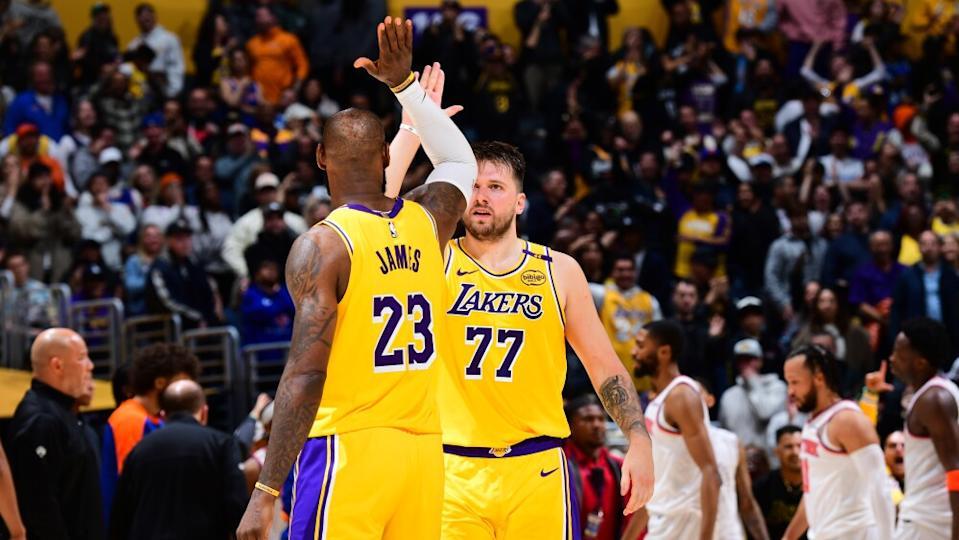



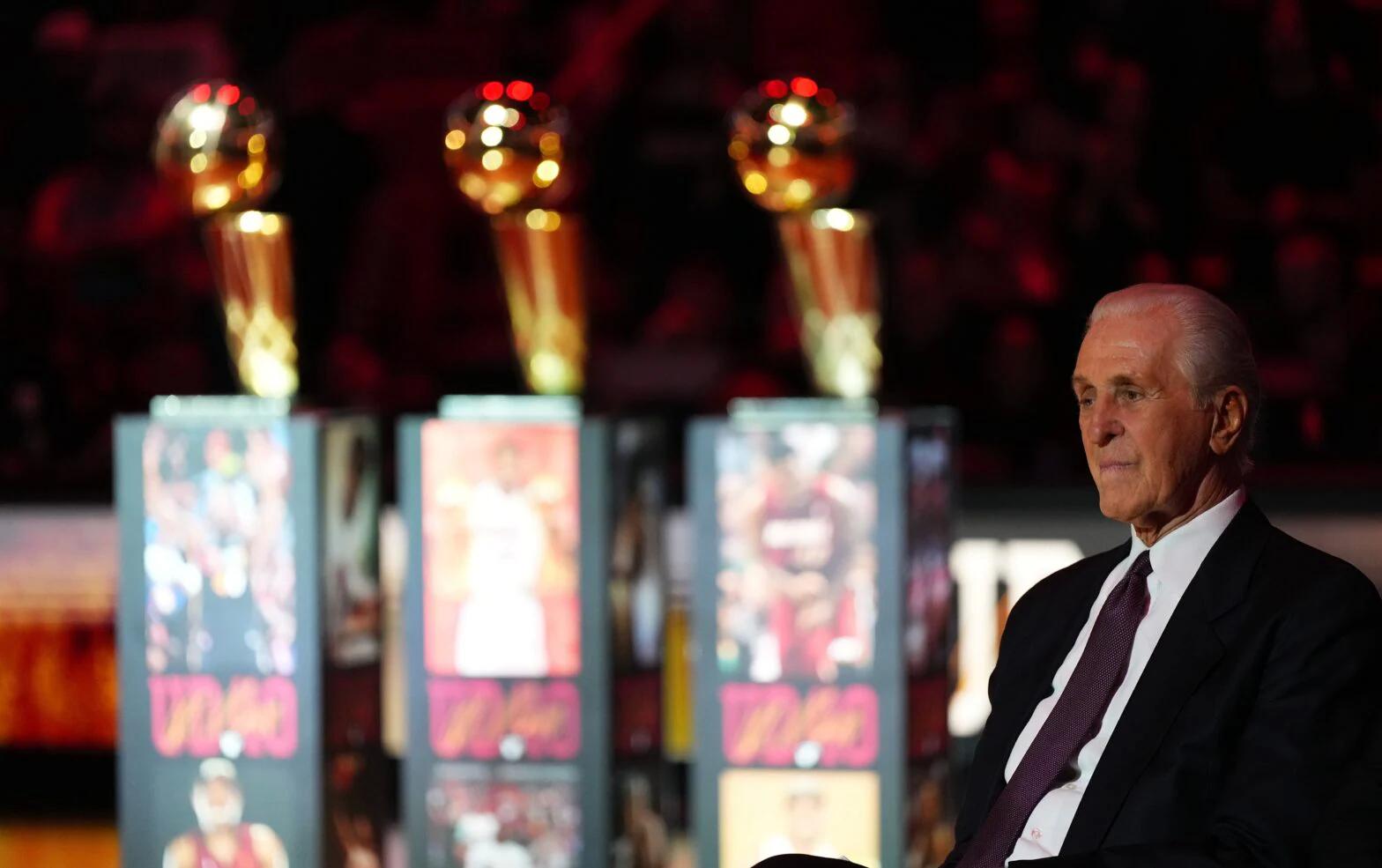
LATEST NEWS
